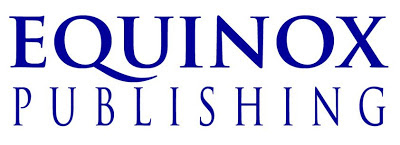My latest review was published today, a consideration of The Islamophobia Industry: How the Right Manufactures Fear of Muslims by Nathan Lean (Pluto Press, 2012). Here is an excerpt:
Human beings are wired to be aware of difference. It is natural part of human nature to forge various social alliances that foster senses of “us,” the insiders, in distinction to “them,” the outsiders. Problems arise when the outsiders become the enemy, and they further function in such a way that one’s individual and collective identity is created by way of opposition to the other. In the United States, this dynamic is all too frequently found in the post-9/11 environment in regards to Islam, where a cottage industry portrays Islam as a monstrous entity, wholly a religion of violence, pursuing terrorism and the overthrow of the US Constitution to be replaced with “sharia law.” The result of this narrative is a frighteningly large number of people adopting “Islamophobia,” an irrational fear of Muslims and the Islamic religion.The review can be read at this link.
Nathan Lean discusses the phenomenon of right-wing construction of Islamic monstrosity in his volume The Islamophobia Industry: How the Right Manufactures Fear of Muslims. The book reveals the astonishing success this industry has had in shaping negative public opinions about Islam. While one might expect that anti-Muslim sentiments was high among Americans shortly after the attacks of 9/11, Lean shares Pew Research Center polling data wherein “59 percent of Americans had a favorable opinion of Muslims just two months after the collapse of the Twin Towers.” Further, a few months later, “45 percent of Americans” held “views of Muslims that were generally positive.” However, through the prolific distribution of its message through various forms of media, the right-wing Islamophobia industry was influential in shaping strongly negative opinions of Islam. In 2002, hate crimes against Muslims increased by 1600 percent, and in 2004, 46 percent of Americans “believed that Islam was more likely than other religions to encourage violence.”
How did this industry begin? Who and what make up some of its major elements? How have the media, and especially the Internet, helped carry the message of Islamic monstrosity? And perhaps most disturbingly from an Evangelical perspective, why have Evangelicals been a segment of the population all too eager to receive and perpetuate this message? Lean’s Islamophobia provides answers to these and many other important questions, which represents one of the most significant political, cultural, religious, and theological challenges of the 21st century.



